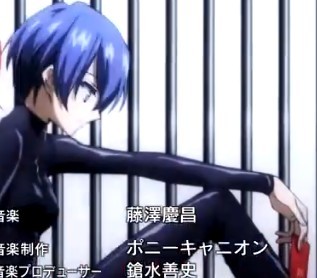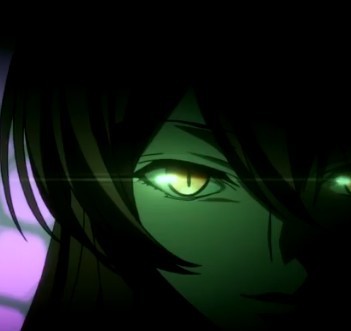#The ways having low empathy and/or disordered personality can affect relationships when you genuinely care about someone but are
Text
I don't care about ""romance"" or """hurt and comfort""" where issues are (temporarily or otherwise) resolved via effusive declarations of love and devotion and praise I want to read more fucked up people fumbling their way through their best approximations of intimacy and human vulnerability like "What are you doing. Oh ew wtf are you crying? Are you good? Don't get snot on my shirt" etc but no one understand smy visions
#I have to do everything MYSELF#Genuinely I love writing about interpersonal dynamics between low empathy people with weird attachment styles it is probably my#key historical trend in OC dynamics and etc#Both with platonic friendship and/or romance it's very endearing to me. Love people who sincerely care about each#other and do it in ways that suck so fucking bad#The ways having low empathy and/or disordered personality can affect relationships when you genuinely care about someone but are#woefully unequipped to deal w/ some emotions and etc can be very interesting and something I wish I saw in Media more often#but unfortunately it's already hard enough to get people past step fucking one of 'low empathy and/or cluster b does not mean evil abuser'#Am not expressing myself very well rn I have a really bad headache and yet I hit the post button
23 notes
·
View notes
Text
What 2020 has taught me
1. Those things that seem like content for sci fi or pure fiction are actually things that can happen. To the entire world. Like a pandemic. And to you. Like a seizure.
2. Everyone is sad. Everyone is struggling. In different ways and in different measures. Makes no one special. But you still get to feel sad for yourself and be compassionate towards others. But it's also okay to draw boundaries because you're everyone too. Remember, not special? You're sad and trying to deal with it too.
3. Every job you have will not add value to your life. It will not teach you new things or give you people you'll want to stay in touch with. Sometimes some jobs will only be a season of your life. Even if the season lasts for over a year. It's okay.
4. You know how you thought picking a college and picking a major and picking your first job and picking a specific industry were all the career decisions you had to make? Yeah, no. It's never a one time thing. You could have a job as a marketing strategist for two years and then want nothing to do with it. And then you'll have to make another decision and work towards it. So I'd like to call it moves. It's like chess. You always have to make a move. And it always has to be strategic, yes. But the truth is in your 20s it probably won't. Even if you try. And as long as you're trying, you'll be fine.
5. You may have different sorts of friends like the one you only talk to about kdrama with or the one you met when you went book shopping alone and the friendship is all about books really. That's normal. But irrespective of why and how you became friends with them, if you consider them a friend then there has to be this basic sense of care, respect and empathy for each other. I don't care what people want to say. If you're faced with the worst trauma of your life, the least your friends can do is check up on you regularly. On text. And if they don't even do that then guess what? They aren't friends. They are acquaintances. Social media and quick promises make everyone seem like your friend. But they are not. They are just nice people who will be nice to you for specific periods and then wander away like you are a speck of dust floating in their journey.
6. You speak a lot and write and you express yourself and you’re emotionally mature but oh my god. You still hold in so much. You’ve known that at a subconscious level and over the last year people - experts - have told you that. You have also realized that you make your pain and sadness about pettier things because dealing with them, admitting about them, sharing that with your friends, is easier. You do that so that you don’t have to deal with the real stuff. Because it’s so damn painful. And you don’t know how to do it. Yet. Acknowledging is the first step anyway right? I know you’re confused about how exactly to let go of all this pain and sadness and feel lighter, and you know that talking to people really isn’t the solution, but I also know you’re smart enough to figure it out.
7. Talking about being smart...you know you’re different than others. Better. Special. Smarter. None of these are the right words. And you never voiced this out until this year because you knew it would make you come across as narcissistic. Some would say it’s because you’re an INFJ. But my mother once said that this may be the first time we are consciously living life but our souls are old and so our instinct and the things we know but can’t explain are because this isn’t the first time for our souls. The connections we feel with certain people, the reason we are so different from our siblings who grew up in the exact same environment with the exact same opportunities, our sense of right and wrong...it’s all because our souls learn and grow with each time and that’s why we are who we are. I think that’s probably how I can explain what I have always felt. That I am living in a different universe than everybody but I have to pretend to be in this one and dumb my emotions and thoughts down. Maybe that’s because my soul has lived through thousands of years while most around me are living their 100th life. Or maybe I’m just narcissistic, who knows?
8. You shift between talking in first person and second person but that’s because that’s how you think in your head and talk to yourself and live your life. You ask yourself things and you accuse yourself of things and you apologize to yourself and you comfort yourself. I think that seeps into your writing and the changing of the voices.
9. You always genuinely thought that you’d not be afraid of dying. And then what happened this October proved you shockingly wrong. I know it’s not so much being afraid of dying but the unbearable pain of knowing what that would mean to your family. So you have to be more prudent and less reckless with your life and the choices you make.
10. Regret is not something that plagued you but this year the realisation and pain of giving away your favourite books from your own personal collection to people you care about as a show of affection and them turning out to be ass holes or losers has hit you so hard. So, yes. No more of that shit. I really fucking want my copy of The Perks Of Being A Wallflower back. UGH. With the childhood picture of me inside it!
11. Sleeping at 5 am in the morning stops being fun or romanticised when you realise just how much harm it does to your body and mind. Literally every single disease and disorder can be traced back to a shitty fucking sleep schedule. It’s not just the hours you sleep but also the quality of sleep and the time you sleep at. So yes sleeping for 8 hours is healthy but not if that 8 hours is from 5 am to 12 pm. ‘Not a morning person’ is just another construct of capitalism and you don’t realise how many industries profit from having you believe that and staying up late or all night. Entertainment. Food. Alcohol. Pharma. Biologically and naturally you are a bloody morning person. And you don’t need 3 cups of coffee to begin your day or your phone notifications to get you to open your eyes and brain to wake up.
12. Sometimes you really have to stop taking people so seriously. I know the idea of treating people as casual friends or entertainment makes you want to fight that concept but you know what? Some people like Pineapple are ever only going to be good for that. No matter how much they ‘grow and change’. So keep them in the background for whenever you want some entertainment or drama. But please don’t clear up your busy schedule to meet them or send them gifts on their birthday.
13. If you don’t have the fruit juice or green juice within half an hour of making it then you are losing out on its most optimum health benefits. Or when you remove the white stringy stuff from oranges. That’s where all the actual nutrients are.
14. I am privileged and so are most of the people I interact with. The global pandemic has been hell for a lot of people around the world. Health wise. Financially. Losing people they care about. But I was blessed enough to be safe at home and have a job that I could smoothly do from home and not have a pay cut or 4-hour long Zoom meetings. So honestly when my friends tell me 2020 has been bad I have to stop and ask them why? Yes, the crippling uncertainty and anxiety is not something that can be undermined. But most people I know had very great positive life-changing milestones this year like moving away to another country for college or taking their first solo trip or getting married. So I have to ask them. Because I am not going to agree that everybody’s 2020 and pandemic narrative is the same.
15. Money gets spent really quickly. When I left my job earlier this year because of personal issues, I thought I had enough savings to last me a year. Full disclosure - I mean to last my personal expenses because I live with my parents. But it didn’t even last me 3 months. And so to use money wisely and buy things that provide utility than instant gratification is something to follow. Also buying one pair of really expensive but quality shoes is better than buying 5 pairs of affordable but low quality shoes that will have a very short life and force you to buy more. I know that higher price doesn’t always mean better quality but sometimes it does. And as an adult now I want to do the whole quality > quantity thing even with things and not just people.
16. Everyone in their 20s went through a crisis of what they should do with their lives and their careers and it’s not unique to the 21st century and the challenges of today. Whether it was Vincent Van Gogh in the 19th century or Sylvia Plath in the 20th, every single person, as brilliant as them went through the torture of making these decisions and living with their consequences. You may think I picked wrong examples for they both killed themselves but you know what? They were the people who really want to live more than anyone. They knew what life meant. And maybe if mental health help was more accessible back then their lives would be longer and more peaceful.
17. Telling people everything is overrated. You don’t have to talk about every single thing that’s on your mind or that’s going on in your life. The good and the bad and the mediocre. You have to be mindful about how much of yourself you’re giving away.
18. Re-watch Suits when people at work feel intimidating because the confidence + negotiation tactics that they show can actually work irl cos at the end of the day no matter in what position you’re dealing with people who have emotions and fears and insecurities and desires. You understand how to leverage that nobody can get the better of you.
19. You belong to yourself. No matter how much you love someone or how much they have done for you or how much you owe them - you belong to yourself. You can’t live your life for someone else. Everyone belongs to themselves first. No relationship, no promise, no circumstance should make you feel like you have to give up your life and make it all about them. If and when the time comes to die for them, go ahead. Take a bullet. Donate that kidney. Write them in your will. But live your life for yourself. And let them live theirs.
20. Twenty three was a challenging year. When it started you claimed the age 23 sounds boring and insignificant. Guess it proved you wrong. It hurt so much now. But that only means you’ll look back on it later and see how it added so much wisdom and resilience to your being. It doesn’t mean that it makes all the bad things that happened to you okay. Or that you should be grateful to them. Fuck no. It means that you should be kinder to yourself because at the end of the day, your mind and body find it in themselves to deal with whatever is thrown their way. They have your back. It’s time you learn to sit straight.
#what i learned in 2020#poeticstories#writerscreed#poetryportal#inkstay#writtenconsiderations#flowerais#wnq writers#shareaquote#note to self#things to learn#things to remember#writers on tumblr#poets on tumblr#words to live by#books and libraries#self realisation#self reflection#year end reflection#year end review#end of the year#new year new me#New Year Resolutions#Career choices#vincent van gogh#sylvia plath#2020#creatingnikki
583 notes
·
View notes
Text
Analysing an interview with Kenichi Iwao
I dug up an interesting interview from the creator of Wesker's character saying that Wesker was "clear-headed" but "lacked human emotion and lived to self-affirm his intense elitism"
Now, I don't think Wesker has NO emotions, I think it’s clear he experiences emotions! (And not just smugness and anger, either--his friendship with William Birkin is proof that he can actually form a close relationship, and there’s also moments like the...what can only be described as unrestrained enthusiasm when he literally T-poses and twirls around because having superpowers is just so much fun...). But I do think he has little to no empathy and doesn't experience the emotional responses of a typical human. He doesn’t experience regret or guilt over killing or harming people...so I get what Iwao was going for here even though Wesker clearly isn’t totally emotionless.
Interestingly, the combination of lacking empathy, and his goals primarily being based around fuelling his ego and elitism, quite strongly suggests narcissistic personality disorder (which Wesker does show several signs of in the games, though of course you can’t definitively diagnose a fictional character). There’s still a lot of debate over whether this disorder is primarily nature or nurture...one theory is that vulnerable narcissists, who have low self-esteem, come from abusive backgrounds, while grandiose narcissists who have a genuinely high opinion of themselves come from backgrounds where they were highly praised and valued, but I’m no psychologist and can’t say for sure if that’s true, even psychologists seem to disagree. There does seem to be quite a bit of evidence that it’s partly genetic but that doesn’t mean upbringing can’t affect it.
However, in the early days of work on RE1, it would appear the Wesker Project hadn’t been conceived of yet at all, and that Iwao viewed Wesker as a character who was mostly just...born different. Iwao’s idea for Wesker was that he would have come from an “ordinary American middle-class family”, but from an early age had “scant feelings” and “believed the world to be worthless”. “He enjoyed ordinary family vacations, even displayed excellent grades in sport, but his heart was always cold and he was acting to blend himself into society.”
I’m glad the Wesker Project was introduced, because I don’t think anyone is born evil, and I do think it provides an explanation for where he got his elitist, eugenicist views. But it is interesting to see that the creator of the character envisioned him as someone who was in some ways different from birth. Whether the Project totally caused Wesker’s personality disorder or whether that was genetic or a combination is something we will probably never know unless psychology makes some new discoveries--but either way, being raised in an environment where he was told he was superior and rewarded for ruthlessness and coldness would essentially have taught him that his narcissistic behaviour was the RIGHT way to behave.
Iwao also describes it as “tragic”, that someone as brilliant as Wesker is lacking in empathy and cares mostly about power and about himself. I have to agree, it really is tragic when you think that a genius like Wesker could have made the world a better place if he hadn’t looked down on others as inferior...
Of course, depending on your headcanons for the Wesker Project, some of what Iwao says about Wesker’s backstory could still be technically true. We know he wasn’t raised by his biological family--but given that he seems totally unaware that there was ever a project, he might well have been raised by Umbrella agents who could seem on the surface like a normal family, perhaps even leading him to believe they were his biological family?
While we know he was being taught ruthlessness, and eugenicist and Social Darwinist views, that he underwent extremely difficult training of his physical and mental abilities (getting a PhD by 17 is a lot of work in itself, and then there’s the physical training, which Alex describes as “hellish” in the English script for Rev2--though in Japanese it simply says Spencer “forced them to train rigorously to improve their minds and bodies”, and there’s no word on what Albert thought of it as Alex generally seems much more bitter than he is), and that he was being monitored by Umbrella throughout his childhood...we also know that he never suspected he was part of a project, and that even when he knew Spencer was hiding something from him, he thought it would be about Umbrella and their research, he never seems to consider it might be about himself or that Spencer has any connection to his own past...
You could argue that given the secrecy of the project, and Wesker’s complete shock when the idea is mentioned to him, that the most on-the-surface normal background possible is the most fitting. There’s something interestingly sinister about the supposedly normal family with ulterior motives like that...
Of course some things clearly did just change as the series developed...
Interestingly, though, the idea of Wesker wanting “to create a second humanity of his own design” is present right from this early interview and seems to have been planned from the start! Iwao makes it clear that he always intended for Wesker to be merely “using” Umbrella as a stepping stone towards his own ambitions, and that his ultimate goal was always meant to be revealed to be “mass extinction and forced evolution”. It’s very interesting to discover what elements were planned from the start and what were not.
40 notes
·
View notes
Text
Sometimes on Tumblr, when you talk about narcissistic abuse, or just about narcissists in general, people will tell you that you’re “villainizing” narcissists, or remind you that “not all narcissists are abusers.”
But here’s the truth: Being raised by a narcissistic caregiver is inherently traumatic, even if the narcissist might not often engage in behaviors that are generally labeled abusive.
Children have deep emotional needs that must be met in order to develop emotional, mental, and physical health. Narcissists are, by their very nature, unable to meet those needs.
Children need attunement.
“Attunement is the way caregivers “tune in” to a child’s needs, work to understand their thoughts, and respond to how they are feeling and behaving. Between 2–6 months, babies begin to distinguish between caregivers and others, learn how caregivers respond when they need something, and reach for a preferred person when distressed. Through this time, attunement happens as caregivers begin to develop a special understanding of their baby’s behaviors, feelings and needs. Babies also begin to understand that their caregiver is reliable and trustworthy. Understanding of non-verbal communication and cues increases and the ability to “read” each other becomes stronger.”
The problem is that narcissists are incapable of consistent attunement. They can occasionally be very perceptive about others’ feelings or point of view, but the truth is that to a narcissist, self always comes first. They have a greatly reduced capacity for empathy, and thus a greatly reduced capacity for attunement. If a baby does not experience relatively consistent attunement from their primary caregivers, they become stressed and afraid. Chronic anxiety this early in life, and ongoing as the child grows up, has huge impacts on a person’s emotional and physical health.
Children who experience frequent misattunement from their caregivers “stop expressing their needs, learn to unconsciously reject their needs and then shut down and disconnect from their needs. Dr. Laurence Heller, author of Healing Developmental Trauma says that children who experience this sort of deprivation give up their demand for caring and love. They decide unconsciously that there’s no hope that their needs will be met.” Experiencing this kind of despair so early in life has dire consequences for emotional health.
Children need people to recognize their emotions
Children are not born with an innate ability to recognize, much less deal with, their own emotions. They need early caregivers to teach them to recognize their own physical symptoms of fear, anger, disgust, happiness, sadness, and love. Furthermore, they need help learning to cope with their negative emotions. “The first step to coping with negative emotions is to figure out what you are feeling and to accept those feelings. Even if we don't accept the bad behavior that often accompanies negative emotions, we still want to send the message that all feelings are okay, even the worst ones.” Children need to be taught to label and validate their feelings; to avoid acting out when they feel sad, angry, afraid, etc; and to find better ways to express and release negative feelings.
The problem here is that narcissists are well-night incapable of consistently validating other people’s feelings. To a narcissist, only their OWN feelings are important; those of other people are lesser considerations. Narcissists have a deep need to be the center of attention, so when their child is distressed, a narcissist may become angry with the child for taking the spotlight away from them, or for making them look like a bad parent by not being constantly happy. When a caregiver’s response to a child’s negative emotions is frequently anger, the child subconsciously learns the lesson that their negative emotions are BAD and that they are BAD for having them. This is the opposite of accepting, validating, and dealing with emotions in a healthy way.
Children whose emotional expressions are frequently rejected by early caregivers often learn to reject their own feelings, developing alexithymia (the inability to feel or identify one’s own emotions) and a variety of emotional disorders. Emotions cannot really be suppressed forever, so unvalidated feelings of fear turn into an anxiety disorder, feelings of sadness to depression, feelings of healthy anger into anger management problems. Unacknowledged emotional distress can also lead to chronic health problems and mysterious chronic pain, as the body desperately tries to signal to the individual that something is wrong.
Children need a feeling of safety and stability
“Children need to feel that... there is stability in their lives. That is why kids need to have a routine and a consistent and stable atmosphere. They should know that their needs will be met and that the people around them will make sure that they are kept safe. So, when a child feels this way, it means that the child feels that his or her caregivers are dependable, reliable, and have a genuine care for the little one.” The CDC points out that “Safe, stable, nurturing relationships and environments for children and their caregivers provide a buffer against the effects of potential stressors.”
Children that grow up feeling generally safe and secure grow up with the subconscious belief that the world is a safe place and that even if bad things happen, they can be okay. Children that do NOT grow up in an environment that feels safe and stable develop the belief that the world is NOT a safe place and that something terrible could (and probably will) happen at any time. A feeling of safety and stability allows a child to relax, which not only reduces anxiety, but also promote digestion, healing, growth, learning, and the formation of healthy relationships.
Unfortunately, narcissistic parents, even when they are not overtly abusive, are not reassuring people to be around. For one thing, they are prone to unpredictable mood swings, especially anger. Not only are the narcissist’s frequent fits of rage inherently frightening to a small child, but it’s very hard to tell beforehand what will set them off. People who live with narcissists frequently find themselves “walking on eggshells” to avoid upsetting them, and this constant threat hanging over a child’s head will not allow them to truly relax.
A child that is constantly physiologically on guard cannot truly relax. Their autonomic nervous system (ANS), which is in charge of fight-or-flight instincts, has a switch that is stuck in the “on” position. When your fight-or-flight is nearly constantly engaged, it interferes with digestion, healing, growth, learning, and the formation of relationships with others. A person experiencing this kind of hypervigilance can develop issues like chronic fatigue (because being “on” all the time is exhausting) or unexplained back pain (because the large muscles of the back tense up with unacknowledged fear).
Children need to feel loved
Children need to feel safe and secure, and that often comes from feeling loved. Love is when a person puts someone else’s needs ahead of their own. Children need, as we have seen, to know for sure that if they have a need--be it physical or emotional--that their caregivers will supply it.
A narcissist is incapable of genuinely putting someone else’s needs ahead of their own. Sometimes they will appear to do so--if there’s something in it for them. Narcissists often want to look to the world like exemplary parents, which may prompt them to, for instance, buy their children everything they want or send them to a good school. But if the narcissistic caregiver doesn’t see anything in it for them, they won’t put the child’s needs first. Emotional needs, which are less visible to the outside world, are often neglected by narcissistic parents, who don’t worry that someone will see such an invisible need going unmet and accuse them of being bad parents.
But love does not consist only in acts of service with no emotional warmth: children also have a deep need for affection from their caregivers. Children are not born with an ability to view themselves accurately. They learn to view themselves as their primary caregivers view them. If a caregiver reflects to the child that they are valuable, lovable, and capable, the child develops a sense of safety, self-esteem, and self-efficacy.
If a good caregiver can be described as a highly polished mirror, reflecting the child’s good qualities back to them, a narcissistic parent most closely resembles a locked door. Narcissists do not value other people, except insofar as they can do something for the narcissist. They are incapable of unconditional love.
In some cases, the narcissistic caregiver only occasionally reflects to the child that they are valuable (only when they are valuable for the narcissist’s “use”): this confuses the child and gives them an unstable sense of self. It can lead to perfectionism and anxiety: the child thinks, “If only I can be BETTER, then I will be loved!” When the caregiver still refuses to consistently validate the child, they will either push themselves even harder, or give up completely.
In other cases the narcissistic caregiver almost NEVER reflects the child’s true worth. In these cases, intense and chronic low self-esteem results, as the child comes to believe that they have no inherent value--because their narcissistic parent doesn’t believe that anyone besides themselves has inherent value. Many children of narcissistic parents go through life feeling unloved no matter how many good and loving friends they have--because they were taught by their early primary caregivers that they were inherently unlovable.
...
In all of these scenarios, the narcissist is not being overtly abusive. They are, however, demonstrating emotional neglect, which is also inherently traumatizing. In some cases, the effects of a narcissistic caregiver’s neglect can be ameliorated by the presence of another caregiver who can supply what the child needs--but in many cases, especially in our modern system of the nuclear family, the child has no adults in their life close enough to bring their emotions to except those they actually live with, and the others in the house are quite likely to be traumatized themselves by the narcissist’s behavior and thus unable to devote the attention and care to the child that the child needs.
Recognizing the traits of narcissists and their effects on their children is not “villainizing”. It is absolutely necessary for the mental health of people who grew up with narcissistic caregivers. It explains their trauma and validates their deep feelings of fear, sadness, anger, and alienation. It helps us recognize other narcissists in our lives whose effect on us may be toxic. It helps us to draw healthy boundaries and choose healthy relationships. It is a necessary step to trauma recovery.
278 notes
·
View notes
Text
AnR characters mental issues
Hi there! I made several AnR analysis and for most characters, I ended up diagnosing them a mental disorder or illness. So I decided to do the same for each character. Keep in mind that I’m not a psychiatrist so I might be wrong on certain stuff, but I tried my best to be accurate.
Azuma Tokaku - Post-traumatic stress disorder (PTSD)

In the series, Tokaku showed signs of having a PTSD. She went through a traumatic event as a child, which is to witness the murder of her aunt by the hand of her grandmother. It mixed with the words her aunt told her before dying, that she can’t kill because her mother is watching her. The traumatic events mixed with those words and are both parts of her PTSD, which is being triggered by the thought of killing. When she tried to kill Isuke the first time, she froze. When she threatened to kill Kouko, she started shaking. But when she finally remember and understood the cause of it, Tokaku managed to overcome it. Another thing Tokaku might have is Schizoid Personality Disorder, which would explain her emotionless nature and lack of social interest.
Inukai Isuke - Childhood trauma

Isuke experience trauma in her childhood that still has an effect on her behaviour as an adult. As a child, she was highly neglected and have to witness her brother died due to this. Her family was poor and nearly died because of the lack of money. It explains why Isuke is so obsessed with money, it isn’t just because she’s greedy, but because to her money is literally a matter of life and death. Behind that greedy and selfish attitude, Isuke simply wants to not be in the same situation as before or see another person she cares about suffering the same fate as her brother (reasons why she wants to offer money to her adoptive parents). A lot of people think that Isuke is a narcissist, but she isn’t. Narcissistic people care about their image, the way people view them. Isuke doesn’t care about what others think of her. She’s simply a self-centred person who have a high esteem of herself.
If you’re interested in more information, here’s an Isuke analysis I made.
Kaminaga Kouko - Inferiority complex

Kouko’s past and behaviour indicated a potential inferiority complex. As a child, she was bullied and made fun of, and her group treat her as a failure. As a teenager, Kouko seeks positions of power, she wants to be the class representative and even call herself “leader of everything”. This could be a way to cope with her feeling of inferiority (so like a superiority complex hiding an inferiority complex). Her group made her felt like she worth less than the other members, giving her a feeling of being inferior and the need to prove it isn’t the case by asserting her authority and proclaiming herself as the leader. It’s her way to deal with the feeling of inferiority. She could also have a form of survivor guilt, feeling that she should be the one of having died instead of Irena, feeling guilty over her death and again, related to her inferiority complex, believing that Irena was superior to her and deserved to live more than her.
Kirigaya Hitsugi - Pathological liar

Hitsugi lies on a daily basis. Her entire persona is a lie. Acting like an innocent child just to deceive others. We don’t know for how long Hitsugi is an assassin, but since’s the ace of an organization at such a young age, we can assume she was one since an early age. So she was raised and train to be a liar, someone who can trick others. Lying is part of her life, it’s natural for her. She usually doesn’t feel guilty for lying, but she did with Chitaru since she loves her. But it didn’t stop her from lying to her for such a long time. And even after the series, if we view the official doujins KnR as canon, Hitsugi continues to lie to Chitaru to keep her by her side. Hitsugi is a liar by nature and would be really hard for her to stop. Also show low self-esteem after meeting Chitaru, who made her realize how terrible she is, even comparing herself to a bug.
Kenmochi Shiena - Low self-esteem

I’ll start by saying that I think Shiena had absent parents in her life, and that’s the reason why instead of seeking help from them when she was bullied, she seeks help from people she met on the internet. If you don’t feel loved by your parents, chances are that will screw your esteem of yourself. But that’s more of a headcanon so let’s go with canon facts. When she was being bullied, Shiena kind of blame herself, wondering if she did something wrong. Bullying can cause someone to have low self-esteem. If we view KnR as canon, then Shiena isn’t an actual assassin. So we have a normal girl entering a deadly competition with real assassins. Looks like a desperate tentative to feel useful and have validation from her group. Why? To give herself more self-esteem because she lacks it. After being poisoned by Hitsugi and failed Class Black in KnR epilogue, Shiena showed a lot of self-hatred, viewing herself as a failure. It could only be because she failed, but that seemed pretty intense and might be how she usually feel when she doesn’t have her source of validation and self-worth (Collective Dismissal).
If you’re interested in more information, I made a Shiena analysis. It’s kind of old but it explains my headcanon regarding her past with her parents.
Sagae Haruki - Self-Sacrificing

This is not an actual personality disorder, but this is still an issue. Haruki is extremely self-sacrificing when it comes to her family. She put there well being before her, is ready to do anything for them, even committing murder, someone Haruki doesn’t like. She’s sacrificing her integrity for their sake. And it went as far as planning to die for them. But she seems to get better after the series, having a normal job and planning to send her siblings to school, so it’s possible that she overcame this issue. Maybe it’s because of what Haru told her after she failed, and her relationship with Isuke. Isuke could have taught her to be more selfish sometimes and give her a reason to stay alive and take care of herself.
Shutou Suzu - Melancholia

After living such a long life in which she lost all her love and is condemned to continue losing anyone she gets attached to, it would make sense for Suzu to have melancholic tendencies. A depressed state in which she’s sadly dreamy. Missing the past, wishing to be with her loved ones again, keep playing shogi which reminded her of her past lover. Suzu is not suicidal but she does wish to die. She wants to be cured of her illness and dies a natural death like her past lover did. I wouldn’t say Suzu is in deep depression, but she does strike me as someone melancholic. The fact she wishes for death is an indicator of it and the fact she was forced to outlive everyone she cared about.
Takechi Otoya - Psychopathy

Oh boy, this one… I’ll try to not be too long since I’m actually obsessed with that. So, Otoya exhibits a lot of psychopathic traits. Lack of empathy, charismatic, pathological liar, remorseless, deceitful, a bully. I actually don’t think someone who acts the way she does and commit the actions she made can be something other than a psychopath. May also possess psychotic tendencies, which would explain why she’s unstable and impulsive than a regular psychopath. Ah, and also a sadist and erotophonophile (lust murder, the sexual arousal when committing murder).
If you’re interested in more information, I made an analysis of Otoya’s mental condition.
Namatame Chitaru - White Knight Syndrome

Took me a while to diagnosed her something. So WKS, more common in men but can also affect women. Chitaru is a really chivalrous person who naturally wants to help and protect the weak. Just look at how she stuck to Hitsugi, who physically looks like the weakest of Class Black. She also said that she was worried about Haru. Chitaru is taking extreme measure to avenge a person whom she met only once, for the sake of her teacher (to avenge her daughter). Chitaru is a person of justice, chivalrous, who protect the weak and fight bad people (not sure but I think she’s a vigilante assassin). She probably can’t help protecting those she views as more vulnerable and is ready to go as far as murder to achieve that.
Hashiri Nio - Sociopathy

Do not be mixed with psychopathy. Psychopaths are born that way, sociopaths are made. A rough childhood and being used to criminality at a young age can cause someone to grow as a sociopath. Considering that Nio was raised to be an assassin and how she was treated, it does make sense. She also displays sociopathic traits such as lack of empathy, cruelty, deceitful, hatred for others, fake persona. Sounds awfully similar to psychopathy uh? Well, both are actually the same disorder, Antisocial Personality Disorder. The mains differences being the source and the fact sociopaths are capable of genuine love and bonding with others, like with Yuri.
If you’re interested in more information, I made a Nio analysis.
Hanabusa Sumireko - Megalomania

We have here a girl who is obsessed with power an being a queen. Good recipe for a megalomaniac. It's also known as grandiose delusion. People with this delusions often overestimate their own capacities, and have an immoderate desire for power. Can be caused by a lack of affection and low self-esteem, and given Sumireko’s past, she probably felt those two as a child, being constantly attacked and feeling weak enough to make the doctor cut off her limbs to replace them with cybernetic limbs. Sumireko doesn’t want to feel weak ever again thus is seeking for power, which developed into megalomania and the idea that she’s a queen.
If you’re interested in more information, I made a Sumireko analysis.
Banba Mahiru/Shinya - Dissociative Identity Disorder (DID)

This one is actually 100% canon. Dissociative Identity Disorder, also known as split personality. I mean, there’s no need to really debate on it, it clearly shows in the series she has that. DID can be caused by childhood trauma, which Banba suffered. DID can also come with other illnesses and disorders, such as PTSD, psychosis, schizophrenia, anxiety. And through the series, Banba showed signs to possess them all. She has a PTSD triggered by light, she’s disconnected from reality, she hears voices in her head (when one can hear the other personality), and is always showed to be nervous and anxious. This character is the only one I’m certain the author actually made researches about DID to create her because this is just so realistic and spot on.
If you’re interested in more information, I made a Banba analysis.
Ichinose Haru - Autism Spectrum Disorder

This one may surprise depending on your knowledge of autism. I’m autistic myself and I believe Haru is on the autistic spectrum. Most autistic people are introvert, but it doesn’t mean that extrovert autist doesn’t exist. I know a few IRL that are quite extrovert and really social. Autistic people are often naive and incapable of being malicious. It’s also hard for them to mix emotion and rationality. When Haru is being emotional she often acts irrationally, but when she’s being colder and less emotional she can be quite rational. Autistic people can also more easily deal with trauma, and Haru, despite her really traumatic past is still optimistic and positive. She also seems to lack basic social skills which make her kind of socially awkward, like she’s trying too hard. Like she’s being too friendly. Autistic people also often have an obsession, a restricted interest. Haru probably didn’t have the chance to develop one, given her past, but according to her info her hobby is crafting and she did show that she’s fond of that, with the strap she made.
Yuri Meichi - Superiority complex

She may not be in Class Black but I believe she deserves to be on that list. Given her past and how powerful she is (let’s not forget Yuri won her Class Black in 6 days), Yuri probably feel above others, like she’s superior to them. This feeling causes her to have really low empathy for others since she views them as beneath her. She has no sympathy for Haru when she’s having a mental breakdown, she had no issues beating Nio has a child. And if we consider KnR as canon, then she also has a sexual relationship with Nio, which is, considering their ages, illegal. Yuri acts as if she’s above everything, even the law (well she technically is, given the fact her clan control the world) and morality. She also seems to treat others as tools. Some of those are psychopathic traits, but I don’t think she’s a psychopath. She’s most likely the result of her childhood, being a powerful queen bee, she’s just too used to control others which make her feel superior to them and view them as tools.
If you’re interested in more information, I made a Yuri analysis.
That will be all for this analysis. I hope you liked it and thanks for reading. If you have any opinions you want to share with me feel free, either you agree or disagree with me.
#akuma no riddle#riddle story of devil#anr#tokaku azuma#isuke inukai#kouko kaminaga#hitsugi kirigaya#shiena kenmochi#haruki sagae#suzu shutou#otoya takechi#chitaru namatame#nio hashiri#sumireko hanabusa#mahiru banba#shinya banba#haru ichinose#yuri meichi#analysis#mental illness#mental disorder#mental issues#headcanon#theory#ricky talk
81 notes
·
View notes
Text
Selfish Empathy.
[Note: Names and other identifying info have been de-identified for confidentiality.]
I came out of my morning rounds with my patient, Rose, thinking that the interview went well. Rose was a 16-year-old girl with persistent depressive disorder, possible bipolar disorder, anxiety disorder, and PTSD (from being sexually assaulted by a young man two years ago), presenting as a referral to the psychiatric emergency department from her therapist for having suicidal ideation with a plan, now admitted to the child and adolescent unit of the psychiatric hospital. Within the past 7 months, Rose had been hospitalized almost constantly from March to June, with no psychiatric history before that. She did have an extensive history of self-injurious behaviors and suicide attempts dating 3 years ago, involving cutting her wrists, thighs, and stomach with glass, knives, and razors; attempting to hang herself with bed sheets, and attempting to drown herself. She reported to have attempted suicide 30 times.
Due to her repeated self-injurious behaviors, her numerous hospitalizations as of recent, and her euthymic affect incongruent with her “depressed” mood, my team said that she was showing early signs of borderline personality disorder, and her behaviors were her manipulating her environment to get what she wanted. Having experienced being very close to mental illness myself, I felt I understood her. I thought I could relate to her need for attention by harming herself, which behaviors were a product of a childhood full of abandonment and void of love. I thought I would know how to talk to her and build a strong therapeutic alliance.
Today was the morning of Rose’s discharge, and I told her what a great job she had done – she was insightful, intelligent, and supportive in groups, and she was able to identify her stressors and coping skills. She shared with me how happy her close friends would be to see her out of the hospital, and how much they mean to her. She also opened up to me about a friend of hers who is suicidal and whom she is concerned for. I congratulated her for caring for a friend who was going through the same thing she was, and I encouraged her that by her making the decision to seek treatment when she knew she needed it, and by being successfully discharged from the hospital today, she can set the best example for him. I told her that she had been working hard and doing great, and it will only get easier from here. By the end of our conversation, she had managed a smile. I gave her a high-five and we left.
I came out of that conversation thinking that we left off on a good note, so I was surprised when my resident gave me feedback on the encounter. “You don’t need to be her cheerleader so much,” she said. “Actually, Rose hasn’t been doing a great job while here. With a manipulative patient like that, you don’t want to feed into her attention-seeking behaviors.”
The truth was, Rose had been harming herself every other day while in the hospital at the slightest provocation – when her mom suggested she go to the police about her rapist and she did not want to, when she got into an argument with a patient on the unit, and when she did not get discharged yesterday. Her threats to kill herself were contingent on her “getting her way,” and her “suicide attempts” by cutting her wrists with razors were far from lethal. Her euthymic affect incongruent with her depressed mood made many of us suspicious that her recent excessive hospitalizations were her attempt to avoid reality as she “figured out the right things to say” to be admitted. Yet, her behaviors were not something to be scoffed at; they came from an altered schema of an abandoned child desperate for attention. Because of the neglect she experienced in her past, she formed a tendency to escalate the small stressors in her life to be out of proportion, resulting in her unstable mood and impulsive behaviors. She needed a parent figure to recalibrate her to what is considered the “norm.” By validating Rose’s “hard work” when actually she could barely go 2 days without endorsing self-injurious behavior, I had set the bar low. She could very well think that she could cut her wrists every other day and still be “doing a good job.”
People with traits of borderline personality disorder, and likely many others with psychiatric illnesses, live in an altered sense of reality exaggerated and distorted by their emotions, and thus rely on the doctor to be the anchor of societal norms in the doctor-patient relationship. The psychiatrist, while establishing a therapeutic alliance, must conduct him/herself as the pattern of stability, presenting the rational situation to the patient who may be driven to be anything but rational. Empathy, then, cannot only be expressed to the superficial extent of exchanging words of kindness and understanding. Rather, with the psychiatric patient, empathy must be truly genuine and have no whimsical words of praise that can perpetuate the patient’s maladaptive behaviors. It seems there must be a degree of detachment with patients, a level of objectivity, for the sake of patients’ emotional well-being. However, this detachment comes from a heart of genuine empathy.
My encounter with Rose could have been better handled if I had brought her to see the severity of her self-injurious behaviors (only after building a therapeutic alliance, of course), and to realize how benign the situations were that provoked her to harm herself. I then could have ended on a positive note by bringing her to share the coping skills that she has learned and used successfully, in order to strengthen her confidence and leave hope for the future. My time with Rose showed me how shallow my concept of empathy was. I had taken empathy to mean saying words of kindness to gain the favor of the patient. This though, I now realize, is actually selfish – my motivation for empathy was so that I could be liked, rather than doing what was truly therapeutic for the patient. It has brought me to reconsider my expression of genuine empathy – instead of being the “nice guy,” I need to have the insight to see what the patient really needs, and to be that anchor to reality for them. And while I may be looked at as the “bad guy,” even if no one sees the good I’ve done, at least I know I’ve done well. After all, medicine is about doing good, even if there’s no glory, right?...
...Right?
0 notes